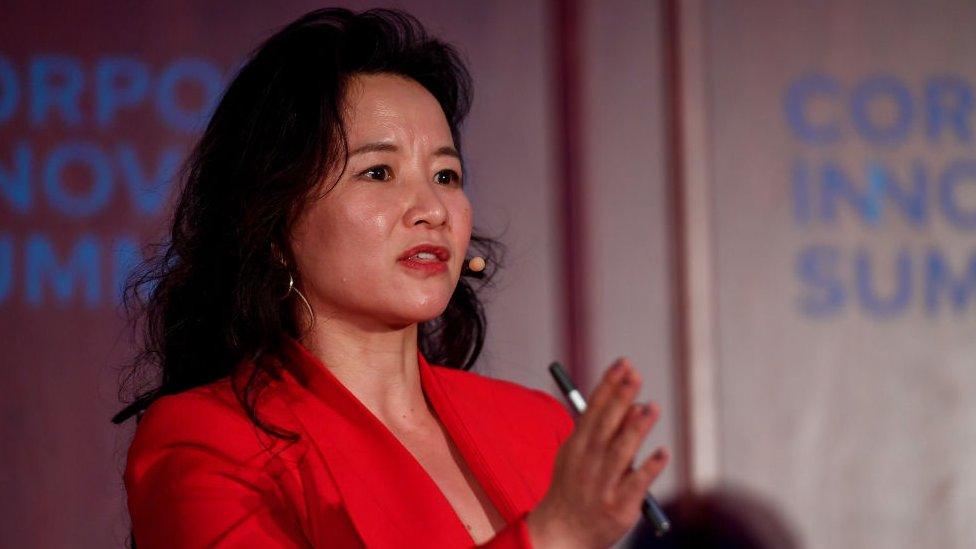Yang Hengjun: China begins espionage trial of Australian writer
- Published
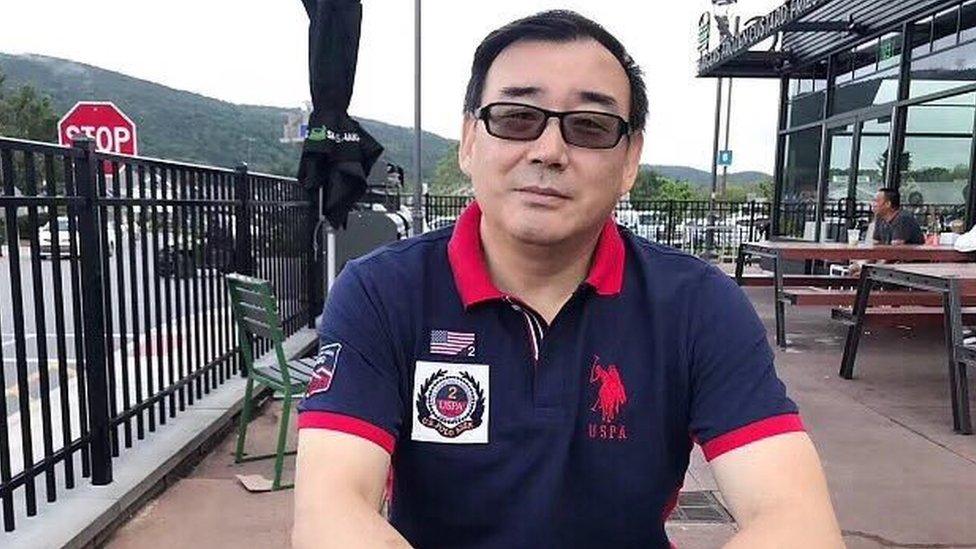
Yang Hengjun is a popular blogger and former Chinese diplomat
The trial of an Australian-Chinese writer charged with espionage by China has begun in a closed-door court in Beijing.
Yang Hengjun, an Australian citizen, has been detained for over two years after his arrest at an airport in 2019.
Beijing has revealed next to no details about the charges he faces, leading Australia to contend he is suffering an "arbitrary detention".
His case has developed as relations have worsened between the two nations.
Dr Yang is a scholar and novelist who had maintained a blog on China affairs. He was nicknamed the "democracy peddler", but his writings in recent years hadn't been directly critical of the government.
On Thursday, Australian diplomats were turned away from entering his courtroom. Applications had also been rejected for Mr Yang's relatives.
"This is deeply regrettable, concerning and unsatisfactory," Australia's ambassador to China Graham Fletcher told reporters outside the court.
"We've had longstanding concerns about this case including lack of transparency and therefore have concluded it's a case of arbitrary detention."
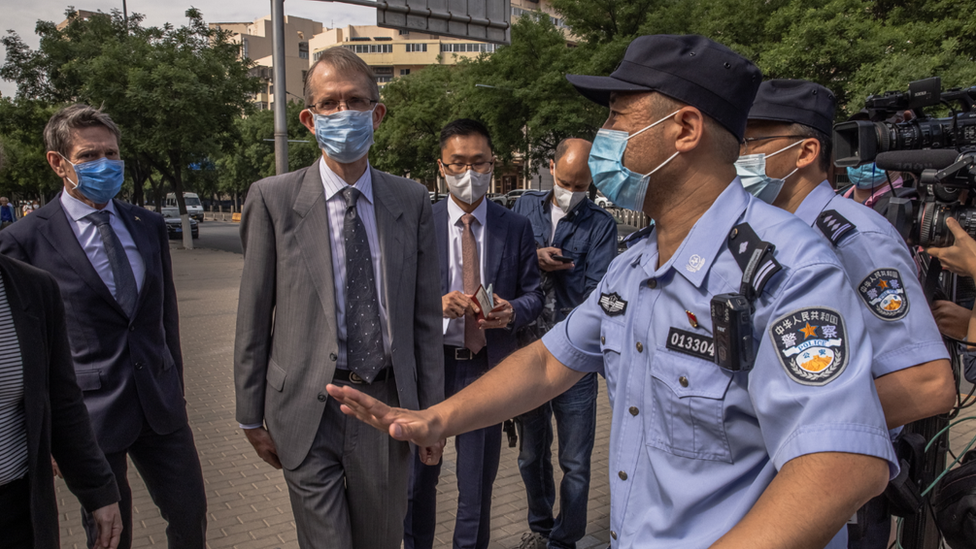
Australia's ambassador (centre) and other diplomats were barred access to the trial
China's foreign ministry has previously told Australia not to interfere in the case, and to respect the nation's "judicial sovereignty".
Australian officials have repeatedly said Yang was not a spy for the nation.
Foreign Minister Marise Payne told the Australian Broadcasting Corporation (ABC) on Thursday: "We are not interfering in China's legal system. The concerns we have raised are legitimate ones.
"I very much hope Dr Yang is provided with a fair trial but we have not seen any explanation or evidence for the charges brought against him."
'I will never compromise'
The trial is expected to run for one day, with a decision that could be released much later. China's criminal conviction rate is 99% and for the offence of endangering national security, Dr Yang faces a jail term of 10 years or more.
Australia has raised concerns with Beijing about Dr Yang's welfare in his 28-month detention, where he is said to be deprived of sunlight and fresh air.
Dr Yang has told his supporters and lawyers that he has faced daily interrogations and sleep deprivation techniques.
In a letter to friends and family in March, released on the eve of the trial, he said his health had deteriorated but he remained principled.
"If someone wants to take revenge on me for my writings, please explain to the people inside China what I did, and the significance of my writing to people in China.
"I have no fear now. I will never compromise," he said.
Dr Yang had previously worked for the Chinese government for a number of years. He migrated to Australia in 1999 where he gained citizenship and continued his research, but was in recent years based in New York, where he was a visiting scholar at Columbia University.
His wife, Yuan Ruijuan, told the ABC she was "quite nervous and worried about the trial because given the current state of Australia-China relations, it's very hard to be optimistic".
Some analysts have linked the national security tensions between China and Australia to the detention cases of Mr Yang, and Cheng Lei, a former CGTN anchor and Australian citizen who was detained in August 2020.
In February this year she was also charged with spying offences.

You might also like:
In 2016 China held its first National Security Education Day, where it warned of the dangers of Chinese intelligence falling into the wrong hands.
Watch: China warns of "dangerous love" with spies
- Published4 September 2020

- Published2 December 2019
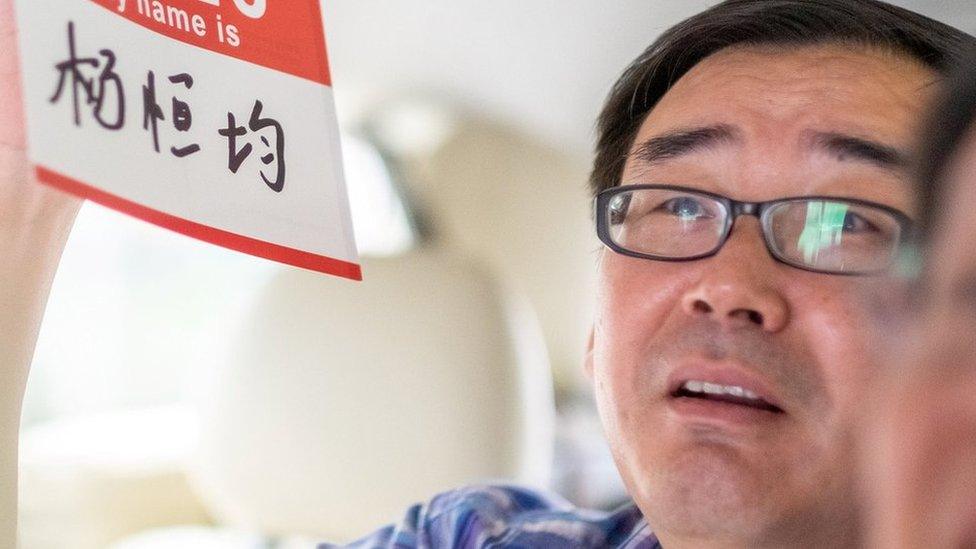
- Published22 March 2021
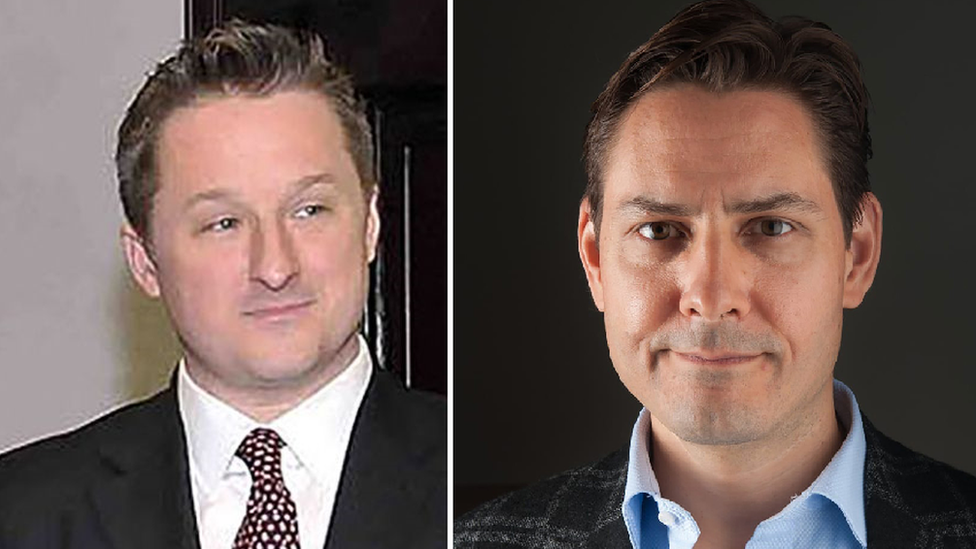
- Published9 February 2021
